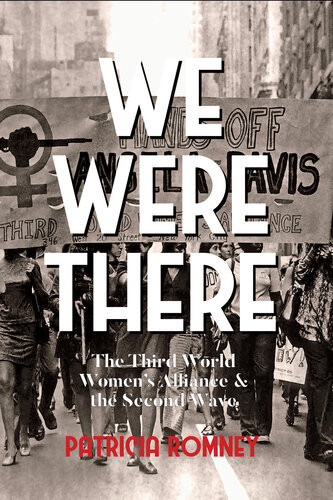

Most ebook files are in PDF format, so you can easily read them using various software such as Foxit Reader or directly on the Google Chrome browser.
Some ebook files are released by publishers in other formats such as .awz, .mobi, .epub, .fb2, etc. You may need to install specific software to read these formats on mobile/PC, such as Calibre.
Please read the tutorial at this link: https://ebookbell.com/faq
We offer FREE conversion to the popular formats you request; however, this may take some time. Therefore, right after payment, please email us, and we will try to provide the service as quickly as possible.
For some exceptional file formats or broken links (if any), please refrain from opening any disputes. Instead, email us first, and we will try to assist within a maximum of 6 hours.
EbookBell Team

0.0
0 reviews"Fifty years ago, the Third World Women's Alliance passionately insisted on interconnections among racism, sexism, and capitalism, inspiring radical analytical frameworks and organizing strategies associated with contemporary conceptions of feminism. We are deeply indebted to Patricia Romney for helping to generate a record of the Alliance's pioneering contributions and thus for ensuring that their revolutionary legacies live on." —Angela Y. Davis, author of Freedom Is a Constant Struggle
From 1970 to 1980, the Third World Women's Alliance lived the dream of third world feminism. The small bicoastal organization was one of the earliest groups advocating for what came to be known as intersectional activism, arguing that women of color faced a "triple jeopardy" of race, gender, and class oppression. Rooted in the Black civil rights movement, the TWWA pushed the women's movement to address issues such as sterilization abuse, infant mortality, welfare, and wage exploitation, and challenged third world activist organizations to address sexism in their ranks. Widely recognized as the era's primary voice for women of color, this alliance across ethnic and racial identities was unique then and now.
Interweaving oral history, scholarly and archival research, and first-person memoir, We Were There documents how the TWWA shaped and defined second wave feminism. Highlighting the essential contributions of women of color to the justice movements of the 1970s, this historical resource will inspire activists today and tomorrow, reminding a new generation that solidarity is the only way forward.